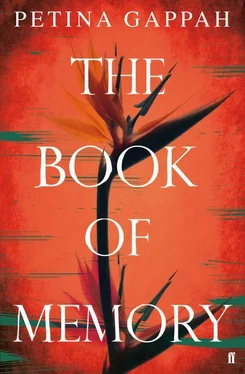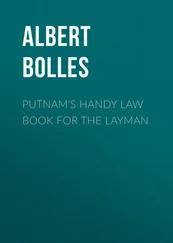I thought the picture would be safe in there. Not only was it a novel about a terrifying avenging spirit, but it also had a cover featuring a creepy unsmiling child, the torso of a ghostly woman and a disembodied eye. My father had made me cover it in brown paper. Our neighbour had the same book, and Mobhi used to burst into tears when she saw it and Joyi would not look directly at it. For all her fear of the book, Joyi took Muchadura with her to school one day without telling me and did not return it. Even when I beat her up until she had a nosebleed, she would not tell me what she had done with the book.
Under the bed, I found a little piece. It showed one of Mobhi’s fat legs against the light fabric of my father’s trousers. I held on to that piece of Mobhi as long as I could, before I lost it, and it too disappeared like the rest of the photograph.
*
Vernah Sithole explained to me at our first meeting that the best I can expect to get in the absence of a completely new and fresh trial is a life sentence. ‘I am fighting to get the conviction overturned,’ she said. ‘But if that does not happen, the Supreme Court could commute the penalty to life. And there will be no early release,’ she added, ‘unless something changes after the election. There could be an amnesty that affects you too. But otherwise life really means life, you know.’
She could also have used the words of the recent editorial in the Herald . It was in response to a report by the Goodwill Fellowship that said prisons had become places of despair disproportionate to the severity of the crimes that brought people there.
With its usual charm and perspicacity, the Herald got to the heart of the matter: ‘Let no one be in any doubt that in this country we really know how to deal with criminals. We put them in prison, then we throw away the key, and leave them to rot there with all the other filth and dregs of society. And if they do not like it, well, they should not commit crimes.’
Synodia could have been written these words. At her approach the milk of human kindness curdles. To every complaint, that there are too few blankets, that there is too little food, or that there is no water to flush the toilets, or not enough sanitary pads, she says the same thing. ‘It was not me who made you a criminal. If you don’t like living in this place, you should not be a criminal.’
So life means a life like poor Mavis Munongwa’s, a life with no parole. There is no hope of escape either, no floating to freedom on sacks of coconuts like Papillon, or, like Andy Dufresne, digging my way out with a rock hammer and crawling through a river of shit to come out clean on the other side.

When I close my eyes and will it to, Mufakose Township comes to me complete in every detail. I still know all the streets that I passed on the way to school; we always took the same route with my father. We passed Chiguyakuya, Mbizi, Kafudzamombe and Mutarimbo. We went past Handira and Mbada and Dapi, and turned into Zongororo, which means millipede, and I imagined that the houses on that road were the legs of a millipede. From Zongororo, we passed the church, turned into Muonde, left into Munondo, then left again into the school gate.
I discovered when I left Mufakose that it is possible to live in Harare in total unawareness that there are areas to the west and to the south containing the detritus of human existence, that it is possible to be unaware of the teeming townships with the houses that look exactly the same, redbrick houses with a square inch of space around them, houses in which humans, plants and dogs managed to flourish. Families lived together all packed one on top of the other, like sardines in a tin: mother, father, another mother, sometimes; aunts, uncles and cousins.
You will discover as you walk around the city that it was planned to keep the direct heat of the sun away from the faces of white people. In the mornings, they left the northern suburbs to go into town to work, and the sun was behind them, and in the evenings, when they went back home, the sun was behind them still. The streets of the northern suburbs are lined with avenues of jacarandas and flamboyants that give cooling shade. But in the townships, the sun is always in the faces of the people. And there are no tree-lined avenues, no cool grass beneath the feet, only the hard heat of the dusty streets.
When I found myself living with Lloyd at Summer Madness, I surprised myself by missing the sounds that I had heard from inside the room that I shared with my sisters in Mufakose. This was the room that my mother called the speya . In the township, the parents’ bedroom was just the bedroom, and the second bedroom, for there were only ever two bedrooms, was always the speya . This indicated rooms so plentiful that one was spare, but as the speya was always where the children slept, it also suggested that our rooms were not our own, and we were mere interlopers, temporary guests who could be evicted at any time.
In Umwinsidale, with Lloyd, on the other side of Harare, I was as far from Mufakose as it was possible to be. Umwinsidale was still tranquillity. There were no sounds that did not belong to nature. Lloyd’s house, Summer Madness, sat on its own small hill, and when I looked out into the night, I saw nothing but the darkness of the valley, and the far-away lights of the neighbours shimmering like fireflies in a distant forest.
In Mufakose, the night was torn with sounds of couplings, snoring, howling dogs, the running feet of thieves chancing it in the darkness, and children mimicking zvinyau dances under the huge tower light that lit up the township street.
In the daytime, the township pulsated to the symphonic movement of the everyday. From the speya , I heard the children of Mharapara Street play their favourite games. I knew all the rules to all the games. I knew it was bad form kuita chiziso when playing rakaraka or dunhu . I knew just how to challenge a rival to a fight by forming a small mound of earth then destroying it while looking around dramatically and saying, ‘Ndaputsa zamu raamai vako. See, see, I have smashed your mother’s breast’, so that the rival had no choice but to fight in defence of the smashed breast.
I knew all the words to all the games, and sang along to them. ‘Pansapo paribe, askende rimwana, pansapo paribe, askende rimwana auPretty auke aukende sikende s’ke skende sikende auke auke wawa.’
From the speya , I heard the woman who walked up Mopani Road from Mufakose to Kambuzuma crying out the vegetables that she sold. I heard MadzibabaConorio, with his shaven head and bushy beard, shouting, ‘ Mabhodhoro ’, as the pots that he collected for mending clanged and jangled against the bottles at his side.
I heard the beggars, the blind men and women led by their children, pleading from one end of Mharapara to the other, ‘Toooooooooookumbirawo rubatsiro vanhu vaJehovah’ , and their grateful claps and acclamations when anyone extended them a kindness. ‘Mwari venyu vakukumborerei, vakukomborerei, vakukomborerei. Mugare kure kwemoto vakukomborerei vakukomborerei vakukomborerei.’
I heard SekuruAlexio, whose eyes dripped with yellow pus and who spoke in a Malawian accent as he tempted the children into buying mbwirembwire . If a child bought more than one pocketful, he exclaimed at what he saw as the child’s riches and said, in delight, ‘Uri mwana wambozha!’
We were poor without knowing it. There was nothing ennobling or romantic or life-affirming about our poverty. It just was. And you could say that we did not know just how poor we were because everyone else around us was the same. We accepted the simple order of our lives in the ignorance that other, richer lives were possible.
Читать дальше













